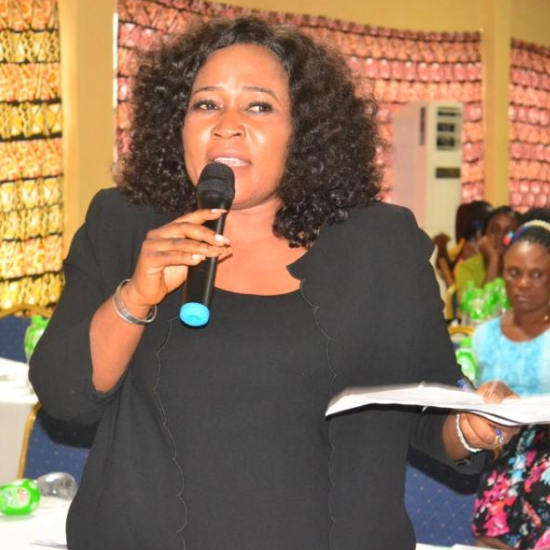Impacting Communities through Fiscal Accountability Knowledge.
Solo squad – Enlightened Ebere push for social transformation in her community.
“I could not believe that a regular citizen like me could hold the government accountable and demand for development of social infrastructure in my community and achieve a result,” said Ebere, a human rights activist and barrister from Imo state, in the southeastern part of Nigeria.
“After the enlightenment sessions with the Niger Delta Budget Monitoring Group (NDEBUMOG) on public procurement, budget analysis, budget monitoring/tracking, basic economic literacy, shadow budgeting, tracking of illicit financial flows and much more, I knew I could not get all that knowledge without acting,” said Ebere.
Oxfam in Nigeria, through its Fair4All project, works with the Niger Delta Budget Monitoring Group (NDEBUMOG) and other partners to strengthen citizens’ ability to hold government accountable for improved efficiency and quality in public spending and services.
“The exposure I received from NDEBUMOG gave me the courage to request a copy of my state budget. To my surprise, I found out that there was a budget allocated to renovate the health centre and construct a toilet in it. There was absolutely no toilet at all in the facility,” said Ebere.
“I met with the house of representatives member responsible for my constituency and presented the budget to her. I demanded that it was the right of my people to enjoy a facility already made available for them in the budget. With a copy of the budget in my hand and power in my voice backed by knowledge, I continued to press and push. In less than three months, my local government constructed a toilet and renovated the entire health facility. It was like a dream,” Ebere said.
Inspired by the success of the health centre, Ebere pushed yet further. If it was done once, it could be replicated. Umuevu primary school, just across from the health centre, had no toilet either, yet was already allocated in the budget for the year.
“I thought it was not right for a girl in primary schol who is already approaching puberty not to have a toilet to urinate or defecate in school. I approached my local government officials and relevant government stakeholders again and presented my case. Today, the primary school has a toilet facility, “Ebere added.”
“Women in my community don’t have to travel a distance anymore before they can access a health centre, and when they give birth, they don’t have to worry about proper disposal of their baby’s placenta anymore. They just flush it down the toilet and enjoy peace of mind! The pupils in the primary school won’t defecate in the open anymore because they now have a toilet,” said Ebere.
“I could not believe that my voice would count in leading change in my community. I could not believe that a citizens like me without any political influence could monitor our local government budget and demand for allocations due us,” said Ebere.
